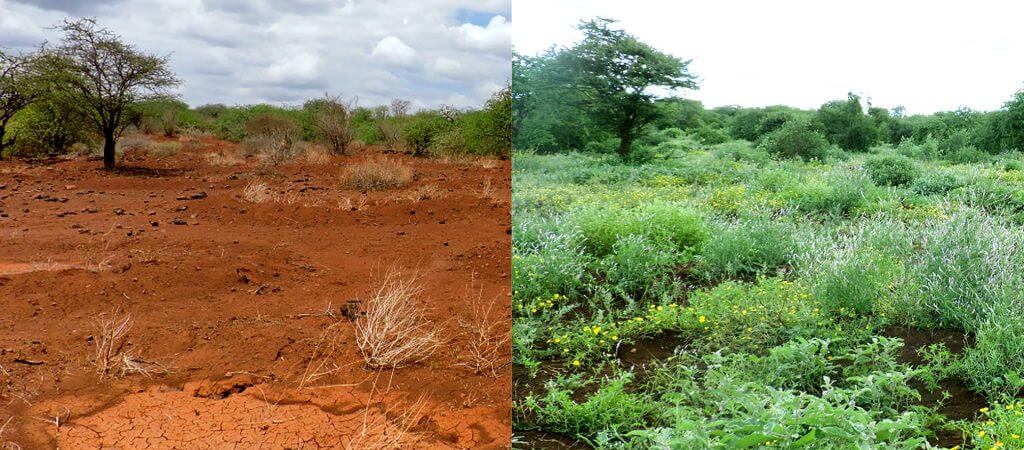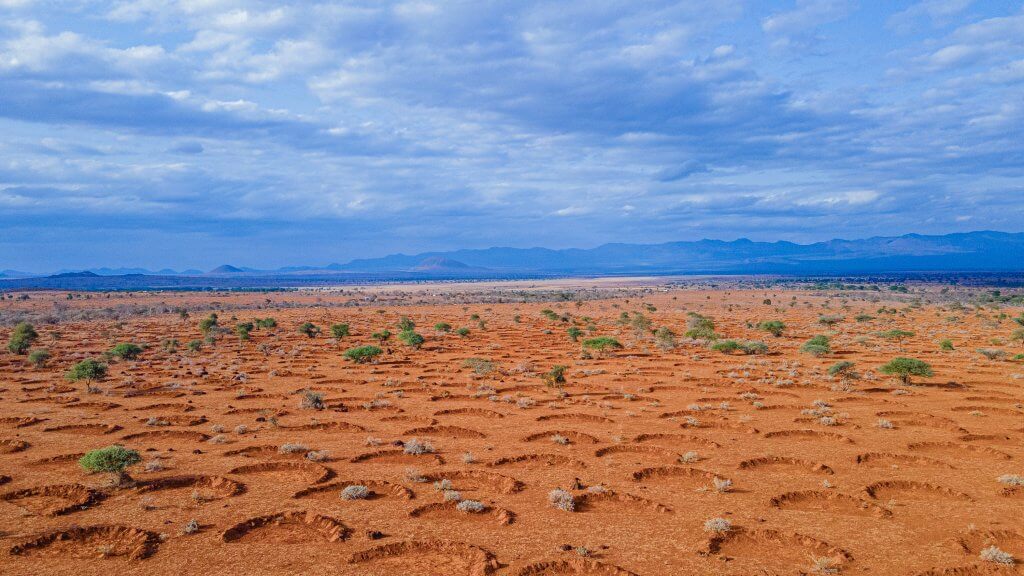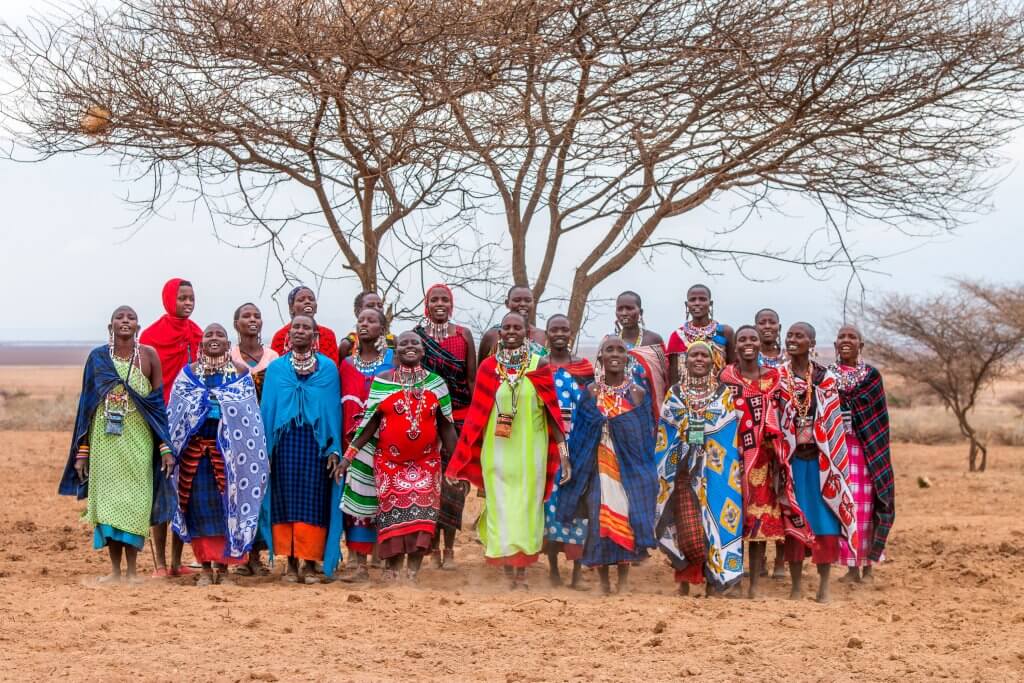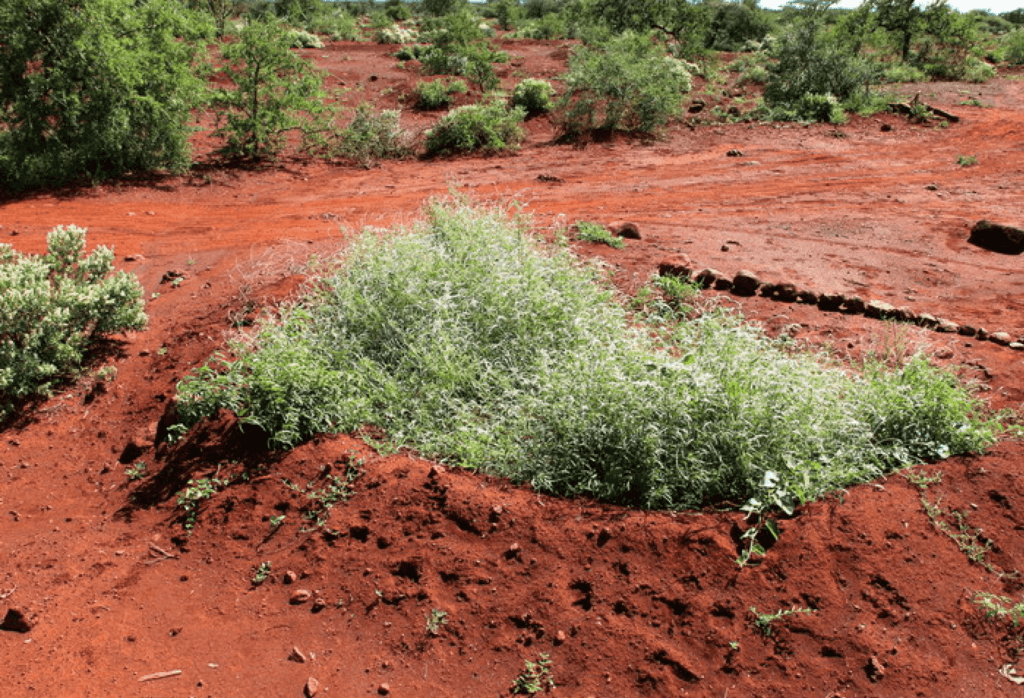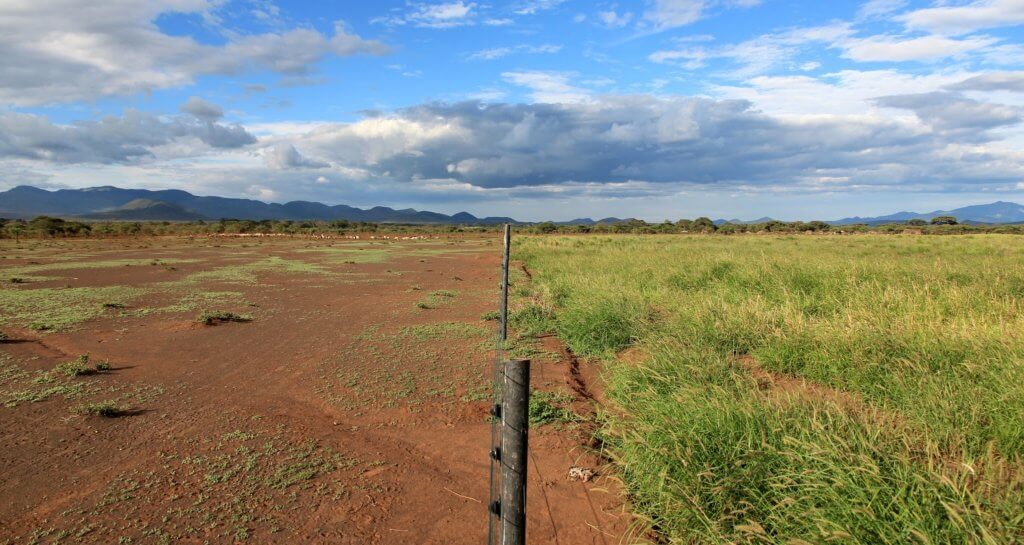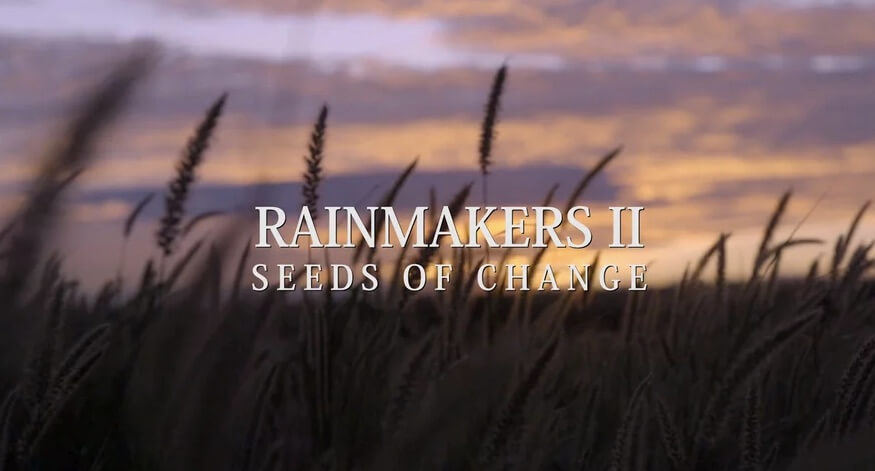Regreening project
Amboseli & Olgulului-Ololarashi, Kenya
Amboseli & Olgulului-Ololarashi, Kenya
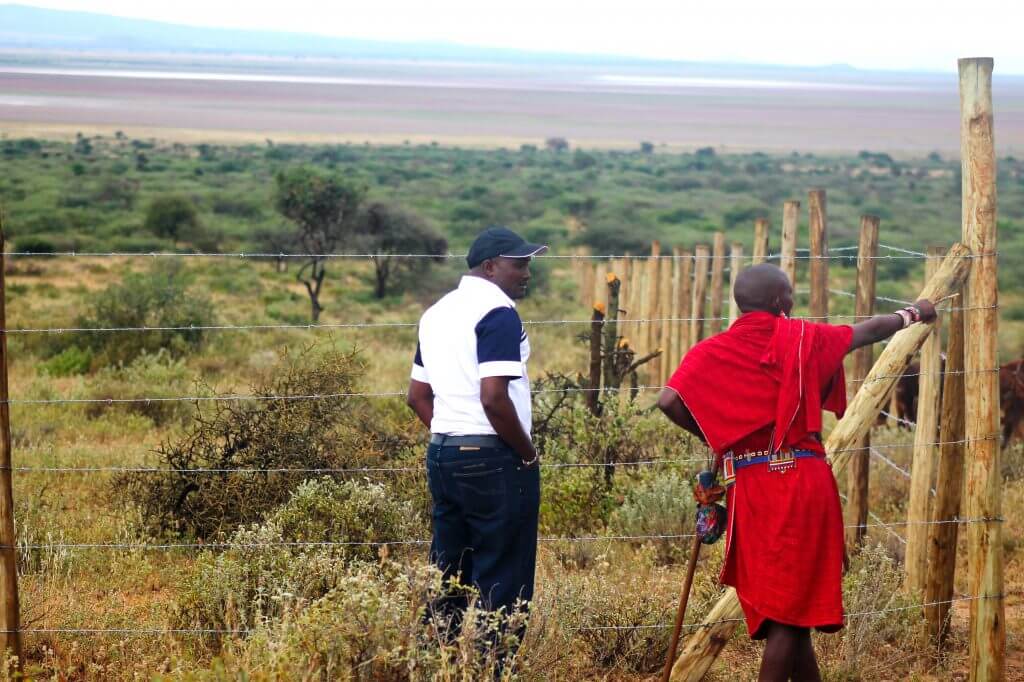
Digging semi-circular bunds to regreen
By digging over 490 thousand semi-circular bunds, we have managed to bring back vegetation in the Kuku Group Ranch, creating environmental benefits and making the land useful again for the community.
The Kuku Group Ranch is located in the south of Kenya and acts as a critical wildlife corridor between Amboseli National Park and Tsavo National Park. The group ranch is home to around 29,000 Maasai people who mostly depend on the land as main source of income and food.
Due to overgrazing and the changing climate, the area has become very dry, making it hard for the local communities to live from the land. Together with the local Maasai community and our local partner, the Maasai Wilderness Conservation Trust (MWCT), we started to restore this degraded land. By digging rainwater harvesting bunds and setting up grass seed banks, we are regreening 3834 ha in the area. Until now the Maasai community has dug 490 thousand water bunds and set up 13 grass seed banks, which are managed by different women groups.
hectares are being restored
Grass Seed Banks
water bunds dug
litres of water retained in 2024
women involved in the Grass Seed Banks
With help of ancient and new techniques that focus on grazing management and rainwater harvesting, we are restoring 5.200 hectares of degraded land within Kuku.
Bringing back vegetation has lots of positive effects on the climate, on the environment and biodiversity, on people and their livelihoods.
Before/after from Kuku, Kenya
Within our grass seed banks, Maasai women grow, harvest, and sell grass (hay) and seeds. They make an income by selling them on local markets or to organizations. The grass seed banks form an oasis of green in the barren surroundings, and the hay the women harvest is food for their livestock in dry seasons.
In total we have 14 grass seed banks in Kuku.
Grass seed bank in Kuku
Bunds (or as we like to call them: “earth smiles”) are semi-circular shaped pits that capture rainwater.
They are dug in our project areas in Africa in order to capture rainwater that will otherwise get washed away over the dry, barren soil. By digging bunds, we can regreen a large area in a very short amount of time, benefiting biodiversity, nature, people and – eventually our climate.
Bundsite in Kuku
One of the main advantages bringing back vegetation is that it creates more moisture into the air. Vegetation “transpires”: it releases moisture into the air which cools it down. On a large enough scale, this helps to create clouds and increases the chance of rain, especially at the beginning and end of the rainy season, helping to restore the water cycle.
Selling the grasses and the grass seeds harvested from the grass seed banks generates a source of income for the women who are managing the grass seed banks. This income serves as an alternative livelihood, making the women more independent.
In total 252 women are involved in the Grass Seed Banks.
Water bunds are semi-circular holes dug to open up the hard top layer of the soil.
The bunds slow down and capture rainwater running downhills, preventing erosion of fertile soil. The water balance in the soil restores, increasing the water availability for the seeds still present in the soil. These seeds now get the chance to sprout, which means: regreening!
Stone lines are also used to capture rainwater and prevent soil erosion.
They are used in the areas of the Kuku Group Ranch where many stones are available. Stones break the erosive force of water and increase the infiltration of water in the soil. Organic material and seeds are captured behind the stones, giving the seeds time to sprout, regreening the area.
Grass seed banks are small parts of communal land that are used for the production of grasses and grass seeds.
The grass seed banks are managed and maintained by Maasai women groups. Once the grasses are fully grown, the grasses produce grass seeds which are sold by the women on local markets or to other regreening projects. This means more income for the women and more green in other areas, a win-win situation!
To ensure the sustainability of the projects, we developed a pasture grazing management plan together with our local partner and the communities.
The goal is to prevent overgrazing of the recently restored areas. Through a community awareness and mobilization program, involvement of and understanding by the local communities is ensured. We also hired community rangers to guard the restored areas and surrounding lands.
The results of the project are so convincing, requests for extension of the projects are made by both the communities as well as other NGOs in the region.
To truly understand how nature-based solutions transform entire landscapes, ecosystems and communities, you have to see it with your own eyes.
And that’s where we run into a problem: we can’t transport the entire world to our project areas. With this interactive experience, we found a solution. We decided to bring our regreening projects directly to you. Virtually, wherever you are. Come on in and experience the Water bund site and the Grass seed bank!
Our mission is to regreen African landscapes in the next 10 years, together with millions of farmers, and together with you.
If we want to cool down the planet in one decade, everyone needs to be in on the change. To spread our message and scale up, we use the power of media, communication, data, and the latest technology. We want to inspire, unite and empower an entire generation, growing a landscape restoration movement.
Seeds of change
To show the impact of our projects, we filmed two documentaries in Kenya to show the impact of our projects. While the first part of the documentary series Rainmakers shows the beginning of our projects and their necessity, Seeds of Change shows the clear re-greening results of our projects and the positive impact our projects have on humans and animals.
